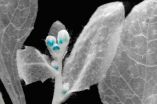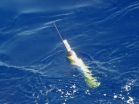Princess Margaret Hospital researchers identify a key enzyme that affects radiation response
Princess Margaret Hospital researchers identify a key enzyme that affects radiation response in head and neck cancer patients
2011-01-27
(Press-News.org) Cancer researchers at Princess Margaret Hospital (PMH) have discovered that targeting an enzyme called Uroporphyrinogen Decarboxylase (UROD) can sensitize diseased tissue to radiation and chemotherapy, which could mean fewer side effects for individuals with head and neck cancer.
The findings, published online today in Science Translational Medicine (http://stm.sciencemag.org/lookup/doi/10.1126/scitranslmed.3001922) are significant because they suggest that targeting UROD – identified for the first time as a key player in human cancers – can selectively boost the effects of radiotherapy and chemotherapy in head and neck tumors, while minimizing toxicity to normal tissues.
"Our analysis of patient biopsies revealed that UROD levels were
significantly higher in tumor tissues versus normal tissues. Cancer patients
with lower UROD levels prior to radiation treatment had improved clinical
outcome, suggesting that UROD could potentially be used to predict patients'
response to radiation therapy," says principal investigator, Dr. Fei-Fei
Liu, Professor of Radiation Oncology at the University of Toronto and PMH,
and Senior Scientist at the Ontario Cancer Institute and The Campbell Family
Cancer Research Institute.
Lead author Dr. Emma Ito adds: "This means that lower doses of radiation and chemotherapeutic drugs could potentially be administered to patients without affecting treatment efficacy."
"Despite the advances over the last few decades, the toxic side effects associated with current therapies for head and neck cancer have caused disappointing outcomes in many patients," says Dr. Ito. Head and neck tumors are often found near critical structures, so destroying the diseased tissue is often a delicate challenge that can lead to life-threatening conditions.
"UROD is an enzyme involved in the production of a molecule called heme, which is vital to all body organs. Targeting UROD creates an opportunity to exploit the heme synthesis pathway, which disrupts the equilibrium of iron and free radical levels in cells which in turn kills cancer cells." says Dr. Liu.
INFORMATION:
The research was supported by the Canadian Institutes of Health Research, the Elia Chair in Head and Neck Cancer Research, the philanthropic support from the Wharton Family, Joe Finley, and Gordon Tozer, The Campbell Family Cancer Research Institute, the Ministry of Health and Long-Term Care, and The Princess Margaret Hospital Foundation.
Princess Margaret Hospital and its research arm Ontario Cancer Institute, which includes the Campbell Family Cancer Research Institute, have achieved an international reputation as global leaders in the fight against cancer. Princess Margaret Hospital is a member of the University Health Network, which also includes Toronto General Hospital and Toronto Western Hospital. All three are research hospitals affiliated with the University of Toronto. For more information, go to www.uhn.ca
END
ELSE PRESS RELEASES FROM THIS DATE:
2011-01-27
January 26, 2011 – In a study published online today in Genome Research (www.genome.org), in coordination with the publication of the orangutan genome sequence, scientists have presented the surprising finding that although orangutans and humans are more distantly related, some regions of our genomes are more alike than those of our closest living relative, the chimpanzee.
The fossil record helped to establish evolutionary relationships and estimate divergence times of the primate branch leading to humans, but not until the advent of genome sequencing technology has it ...
2011-01-27
WASHINGTON – Hands-on safety training for workers in highly hazardous jobs is most effective at improving safe work behavior, according to psychologists who analyzed close to 40 years of research. However, less engaging training can be just as effective in preparing workers to avoid accidents when jobs are less dangerous.
More interactive types of safety training may help employees become more aware of the threats they face on the job and avoid making deadly mistakes, according to the findings in the January issue of the Journal of Applied Psychology, which is published ...
2011-01-27
To combat last year's Deepwater Horizon oil spill, nearly 800,000 gallons of chemical dispersant were injected directly into the oil and gas flow coming out of the wellhead nearly one mile deep in the Gulf of Mexico. Now, as scientists begin to assess how well the strategy worked at breaking up oil droplets, Woods Hole Oceanographic Institution (WHOI) chemist Elizabeth B. Kujawinski and her colleagues report that a major component of the dispersant itself was contained within an oil-gas-laden plume in the deep ocean and had still not degraded some three months after it ...
2011-01-27
Misaligned research, medical challenges and harsh economics are thwarting efforts to slow the destructive course of Alzheimer's disease in the United States, according to a trio of nationally regarded Alzheimer's researchers writing a "Perspective" in Thursday's (Jan. 27) issue of the journal Neuron.
The foremost obstacle is that the most promising preventive strategies are being tested in patients firmly in the grip of Alzheimer's disease — the ones least likely to be helped.
The approach would be similar to testing statins — drugs widely used to prevent heart disease ...
2011-01-27
Boulder, CO, USA - LITHOSPHERE articles published in the February issue cover present-day movements and past deformation in El Salvador, Honduras, and Nicaragua; the tectonics of the northern Owens Valley in California, USA; the paleoseismology of the eastern North Anatolian fault at Yaylabeli, Turkey; exhumation in the southeastern Canadian Cordillera; and the diverse tectonic history of Tunisia.
Keywords: Gulf of Fonseca, Central America; Owens Valley, California; North Anatolian fault, Yaylabeli, Turkey, Canadian Cordillera, Canadian Shield, Tunisia.
Highlights ...
2011-01-27
A new study into Staphylococcus aureus, the bacterium which is responsible for severe chronic infections worldwide, reveals how bacteria have developed a strategy of hiding within host cells to escape the immune system as well as many antibacterial treatments. The research, published by EMBO Molecular Medicine, demonstrates how 'phenotype switching' enables bacteria to adapt to their environmental conditions, lie dormant inside host cells and become a reservoir for relapsing infections.
Staphylococcus aureus is a major human pathogen which can be carried by up to 70% ...
2011-01-27
Some animals produce more offspring than others do. Hormones like prolactin and corticosterone can exercise a crucial influence on the behaviour of birds in the breeding season and therefore on their reproductive success. Scientists from the Max Planck Institute for Ornithology in Radolfzell and their colleagues at the universities of Princeton and Edinburgh have now demonstrated that hormone levels not only play a key role during the breeding season, but already dictate, long in advance, how many eggs a breeding pair will lay, when they will lay them and how often. An ...
2011-01-27
Plants producing flower pollen must not leave anything to chance. The model plant thale cress (Arabidopsis), for instance, uses three signalling pathways in concert with partially overlapping functions. The yield becomes the greatest when all three processes are active; however, two are sufficient to form an acceptable quantity of flower pollen. In a new study, Peter Huijser and his colleagues at the Max Planck Institute for Plant Breeding Research in Cologne offer fascinating insights into the rich range of proteins that are used by seed plants to develop stamens and form ...
2011-01-27
As many as ten to 20 per cent of nurses and nursing students may have substance abuse and addiction problems, but the key to tackling this difficult issue - and protecting public safety - is support and treatment, not punishment. That is the key message in a paper in the February issue of the Journal of Clinical Nursing.
Researchers have recommended six key points that could be built into alternative-to-dismissal (ATD) strategies after reviewing the latest research and professional guidance from countries such as the USA, Canada, New Zealand, Australia and the UK.
They ...
2011-01-27
The temperature of water situated in the subtropical Atlantic experienced a drop of 0.15ºC between 1998 and 2006. This has been revealed by a study led by the IEO (Spanish Oceanography Institute) which suggests that circulation caused by wind could be responsible for this "unusual" behaviour.
Whilst the water temperature in this area, situated along the 24.5º north parallel, from the African coast to the Caribbean, rose by 0.27ºC between 1957 and 1998, researchers have recorded a drop of 0.15ºC in the same area between 1998 and 2006.
"In the ocean there are very ...
LAST 30 PRESS RELEASES:
[Press-News.org] Princess Margaret Hospital researchers identify a key enzyme that affects radiation response
Princess Margaret Hospital researchers identify a key enzyme that affects radiation response in head and neck cancer patients


